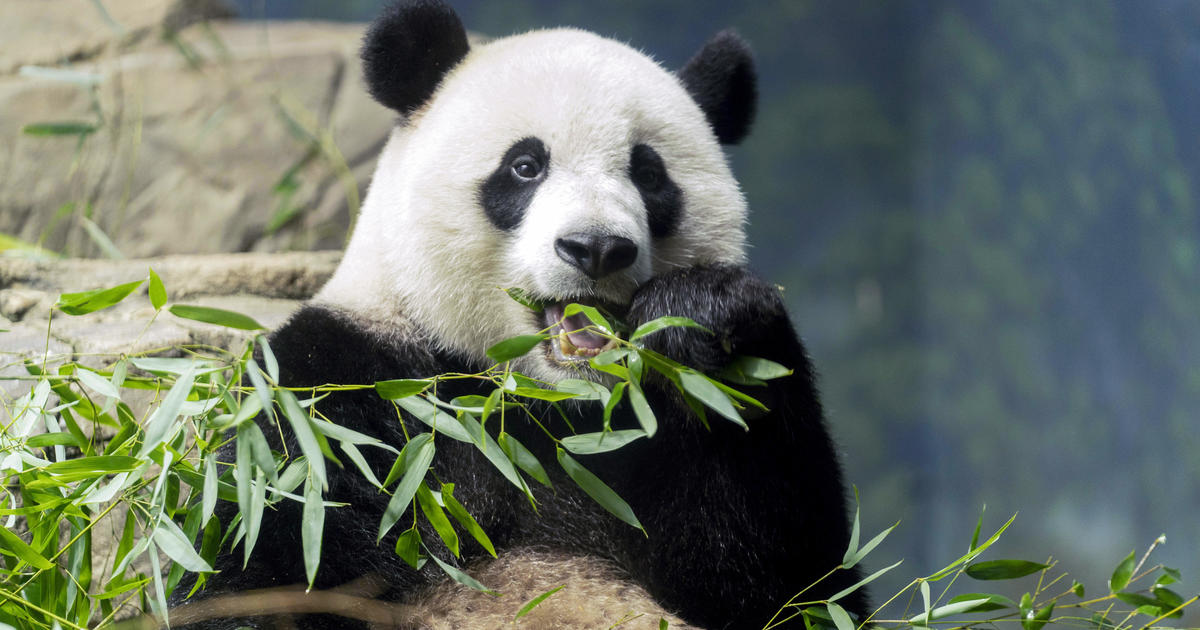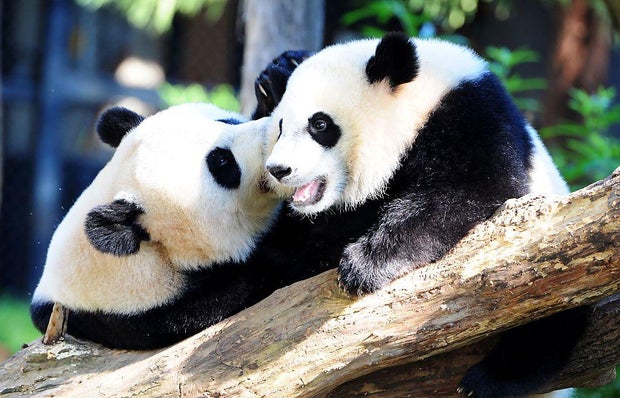The Smithsonian National Zoo’s beloved giant pandas began their trek back to China on Nov. 8 after 23 years in the U.S. The pandas, Mei Xiang and Tian Tian, were on loan for a research and breeding program and in 2020 gave birth to a baby named Xiao Qi Ji, who is also heading to China.
Ahead of the pandas’ farewell to the zoo, the Smithsonian said in a news release that forklifts will be used to move each of them into FedEx trucks. The trucks will transport them to Dulles International Airport, but they will not be visible as they are moved onto the “FedEx Panda Express” – a Boeing 777F aircraft with a custom decal.
Their estimated departure from the airport is slated for 1 p.m.
Jose Luis Magana / AP
Mei Xiang and Tian Tian came to the zoo in 2000 as part of an agreement between the zoo and China Wildlife and Conservation Association and were supposed to stay for just 10 years, but the agreement was extended several times. The agreement was set to expire on Dec. 7, 2023.
The National Zoo first received pandas from China in 1972 in an effort to save the species by breeding them. The zoo has had panda couples ever since.
During her time in D.C., Mei Xiang has given birth to seven cubs – three who died before adulthood and three who have already been returned to China. Per the agreement, the baby pandas are returned by age 4.
KAREN BLEIER
After National Zoo pandas’ official departure, only four giant pandas that were part of the program will be left in the U.S.: Lun Lun and Yang Yang, the giant pandas at the Atlanta Zoo, and their offspring Ya Lun and Xi Lun. This panda family is expected to head back to China in 2024.
San Diego also had pandas as part of the agreement, receiving its first two pandas in 1987. They were supposed to stay just 100 days, but like the deal with D.C., the zoo’s agreement was extended several times and Bai Yun and Shi Shi stayed in the U.S. until 2019. They had six babies at the zoo.
The Memphis Zoo had a 20-year loan agreement with China that ended in 2023 with the return of Ya Ya in April, according to the Associated Press. One of their male pandas, Le Le, helped other pandas across the world conceive babies through artificial insemination, the zoo said. Le Le died in February ahead of the return to China.
Breeding programs have been successful for the once-endangered species. Pandas were upgraded to “vulnerable” by the International Union for Conservation of Nature in 2017, according to the World Wildlife Fund. But only about 1,864 pandas remain in the wild, mostly in China’s Sichuan Province.







I do not even understand how I ended up here, but I assumed this publish used to be great